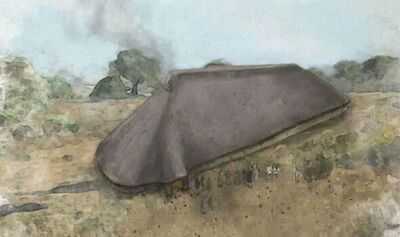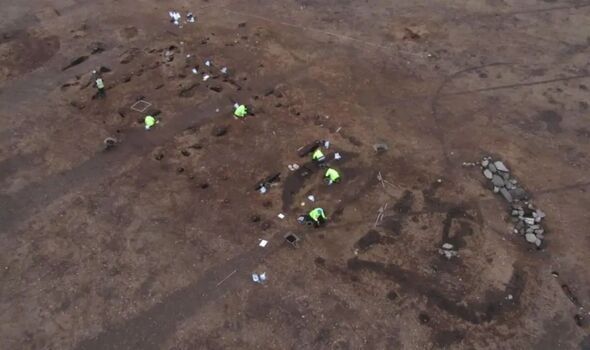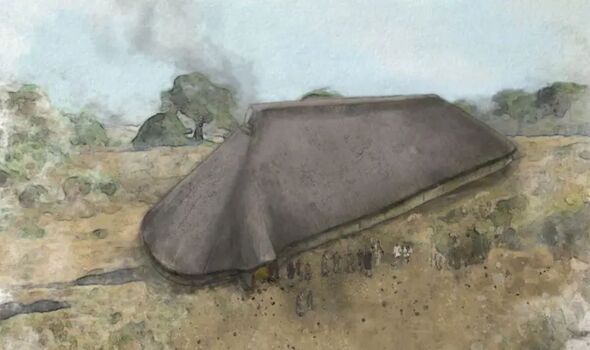

Archaeologists in Scotland have unearthed extraordinary evidence of a large and intricate timber hall dating back approximately 6,000 years. The find was made during digs at the site of new football pitches near Carnoustie High School, in Angus. Archaeologists from Glasgow-based Guard Archaeology said the structure was the biggest early Neolithic timber hall ever found in Scotland and would've been used for festivities amongst some of the country's first farmers.
The hall spanned an impressive 35 metres in length and nine metres in width. Built around 4000 BC, it was constructed from oak timber, with opposing doorways towards one end and walls made of wattle and daub panels supported by wooden posts. Its roof was propped up by timber posts, while additional internal postholes and narrow channels created partitions inside.

Beverley Ballin Smith, one of the report's co-authors, explained: "This monumental timber hall, completely alien to the culture and landscape of the preceding Mesolithic era, was erected by one of the very first groups of farmers to colonise Scotland, in a clearing within the remains of natural woodland.
"It was fully formed, architecturally sophisticated, large, complex and required skills of design, planning, execution and carpentry."
What sets the Carnoustie discovery apart, however, is a second, smaller hall close by, measuring nearly 20 metres by eight metres.
This distinguishes the Carnoustie site from other early Neolithic halls found in Scotland, which typically stood alone within newly cultivated farmland.
Artefacts recovered from the smaller hall include a hearth with charred cereal grains and hazelnut shells, suggesting communal feasting and seasonal celebrations.
Archaeologists propose that autumn was likely a significant time for festivities at the Carnoustie site.
It's believed that the halls may have been located near ancient travel routes, naturally drawing groups from across the region during different seasons.
The excavation also uncovered carefully placed artefacts from distant parts of Scotland, including fragments of Arran pitchstone, a garnet-albite-schist axe, and smoky quartz from the Highlands.
The find has provided fresh insights into Scotland's early Neolithic era, a pivotal time from roughly 6,100 to 4,500 years ago, marking the arrival of farmers from mainland Europe to the area.